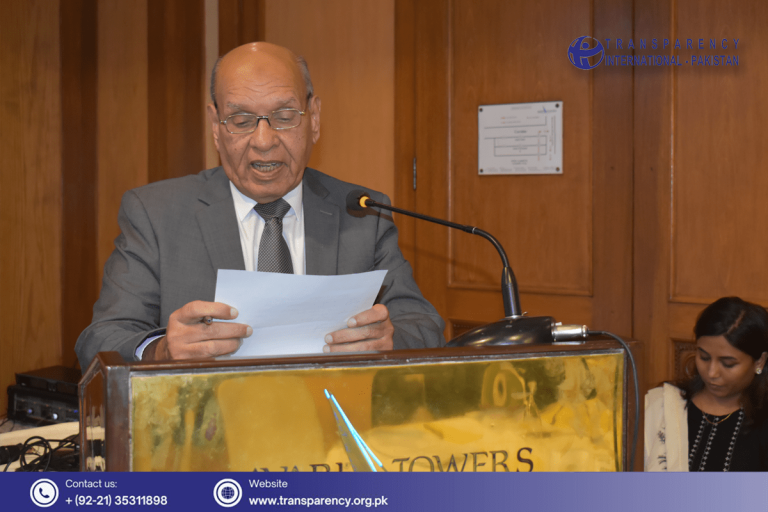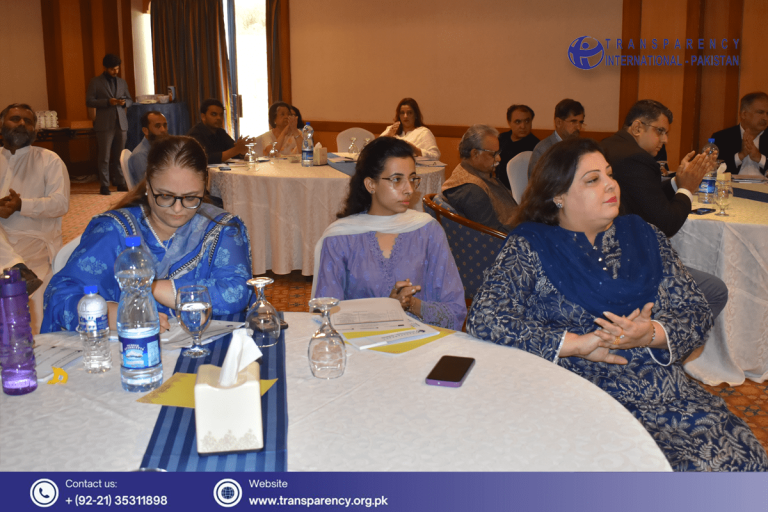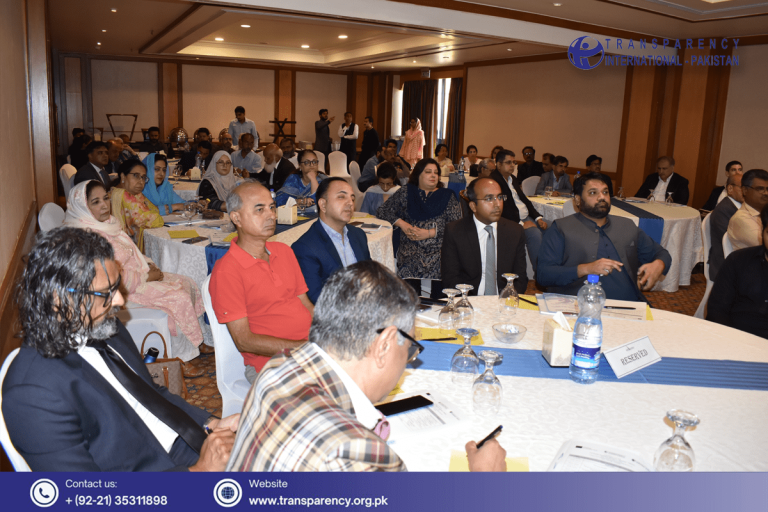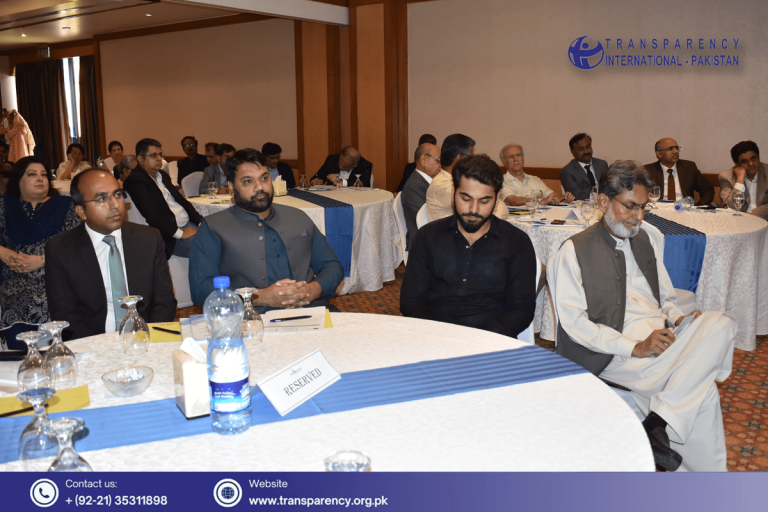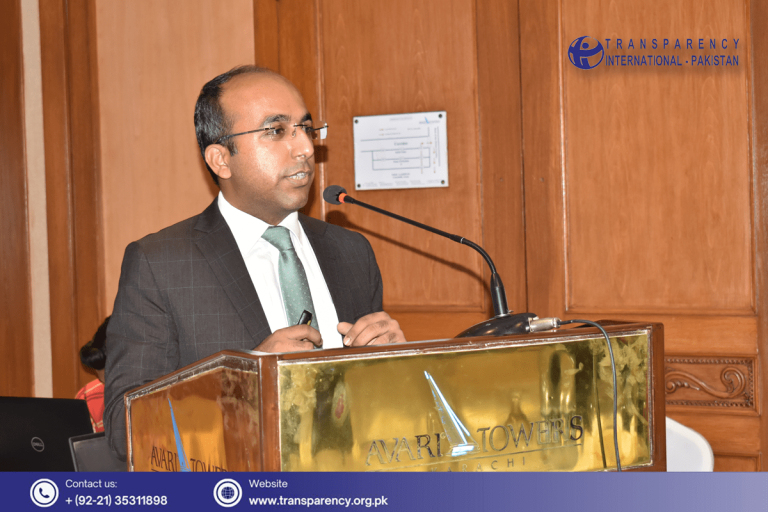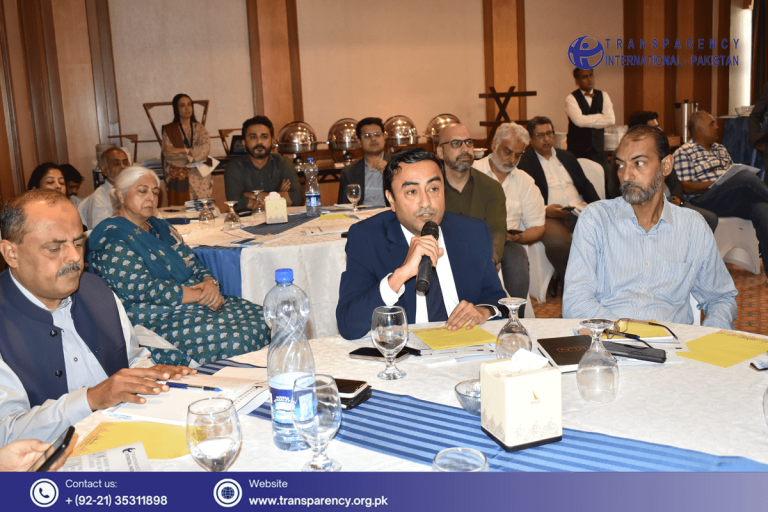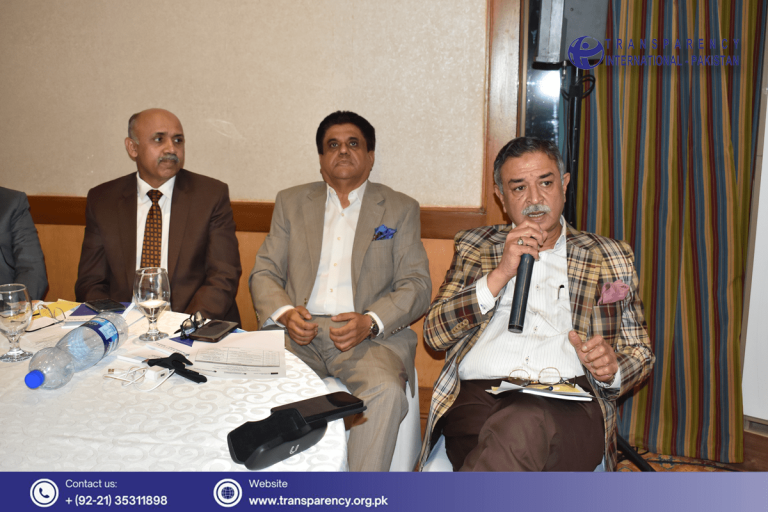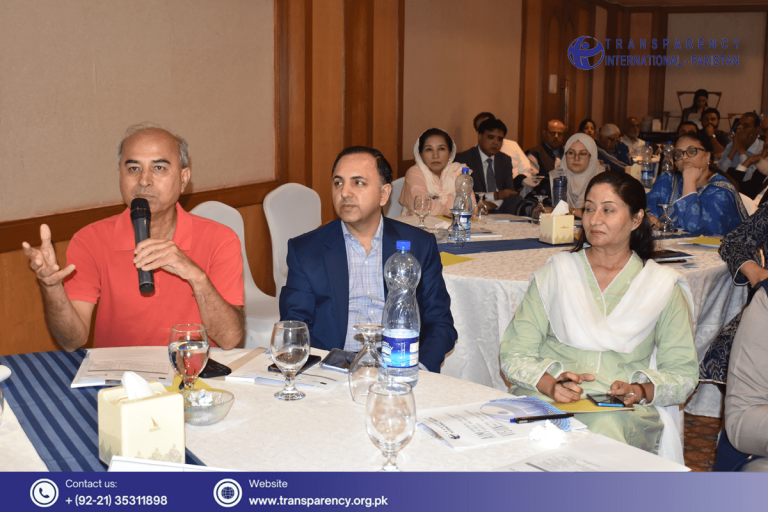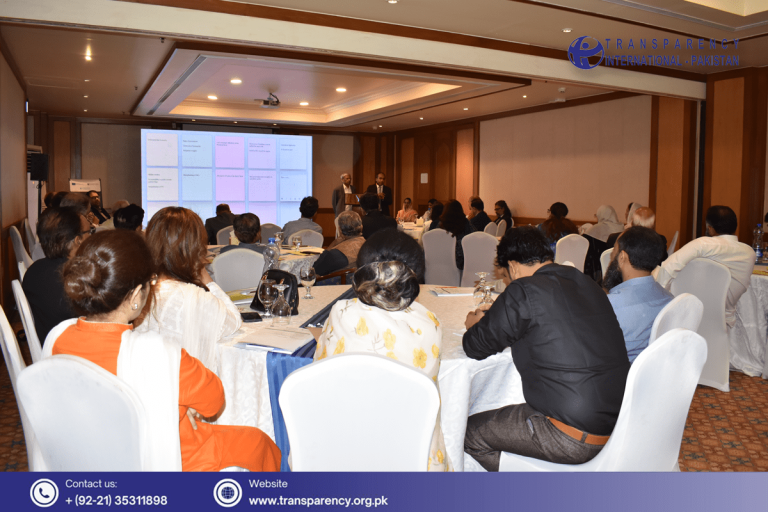Civil Society Governance Diagnostic Assessment – Stakeholder Consultations
Civil Society Governance Diagnostic Assessment – Stakeholder Consultations
Karachi | May 27, 2025
Transparency International Pakistan convened the first stakeholder consultation workshop in Karachi under the Civil Society Governance Diagnostic Assessment, forming part of its contribution to the IMF’s Governance Diagnostic on Pakistan. The event brought together a diverse group of stakeholders, including public officials, civil servants, parliamentarians, civil society representatives, academics, media professionals, and private sector leaders. The objective was to identify key governance challenges and generate actionable recommendations to strengthen transparency, accountability, and institutional effectiveness.
The session began with opening remarks by Justice (R) Zia Perwez, Chairman of TI Pakistan, followed by an overview of the assessment’s background and scope presented by Ms. Raima Mahmood, Policy and Research Coordinator. Dr. Kaiser Bengali, economist and lead researcher for the assessment, delivered a technical presentation on fiscal governance, while Mr. Kashif Ali, Executive Director of TI Pakistan, addressed issues related to the rule of law and social accountability. A compelling keynote address was delivered by Mr. Shabbar Zaidi, former Chairman of the Federal Board of Revenue, who offered an unfiltered critique of Pakistan’s taxation and fiscal management systems, highlighting the effects of elite capture and the lack of political will for reform.
The open discussion segment surfaced a range of reform priorities. Participants stressed the need to formalize the undocumented economy, strengthen and enforce rules of procedure, and build robust governance frameworks across institutions. Concerns were raised about the underutilization of budgets at the provincial level, calling for more efficient planning and better budgetary insights. Several attendees emphasized the importance of regular audits by Public Accounts Committees (PACs) and the strengthening of PACs at all tiers of government. There was a clear demand to rehabilitate Provincial Finance Commissions (PFCs) and ensure equitable allocation of funds at the district level based on objective need assessments.
The group highlighted the critical role of technology and transparency. Recommendations included centralized digitization of public data and services, use of artificial intelligence (AI) to improve governance efficiency, and the integration of Right to Information (RTI) systems with AI for real-time responsiveness. Participants called for the establishment of live tracking systems for RTI requests, and for a verification mechanism to authenticate information disclosed under public disclosure clauses. Concerns were also raised about hidden tenders and non-transparent procurement processes, with participants urging stronger oversight and open contracting mechanisms. The need for greater accountability in public-private partnerships (PPPs) and effective reform of anti-corruption departments was also underscored.
Sector-specific issues were addressed, particularly around the education system, where participants condemned bad governance and corruption, including politically motivated appointments and a lack of oversight. It was recommended that conflict of interest (COI) policies be revised and enforced across the public sector. Fiscal recommendations included introducing taxation on agricultural production and livestock as a means of broadening the tax base and reducing inequities. Stakeholders also called for the maintenance of an updated database of adopted recommendations and the institutionalization of a need assessment cycle to inform planning and budgeting processes in a more responsive and evidence-based manner.
The workshop concluded with closing remarks from Dr. Nausheen Wasi, who thanked the participants for their active engagement and reiterated TI Pakistan’s commitment to channeling these recommendations into the broader governance reform dialogue. The event ended with a networking session and reaffirmed the importance of civil society’s role in pushing for institutional integrity and democratic accountability.

